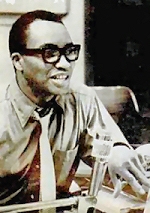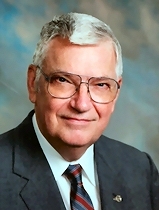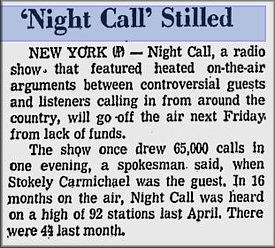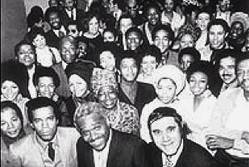Night Call, 1968-69

Night Call returns for its second run, this time from New York, with a focus on Civil Rights. Currently, there are 174 programs in this collection with host Del Shields, including a presentation Shields made to a group in New York.
The first run of Night Call was the first national call-in radio program. It originated in Dearborn, Michigan, and ran weeknights on stations across the country. It was an excellent format for discussion of social issues. The program began in 1965 and ended in 1966, a total of 230 programs.
The Methodist Television, Radio, and Film Commission planned to re-start the program in the fall of 1968, but in the midst of Civil Rights unrest, and following the assassination of Rev. Martin Luther King, Jr., TRAFCO decided to move up the re-start date to June 3, 1968. A budget of $450,000 was arranged, and the search went into high gear for a host, a producer, a program director, and researchers.

The program would originate at WRVR, a community FM station with studios at Riverside Church in New York City. The hour-long program would run at 11:30pm Eastern Time, every weeknight, and syndicated on stations across the country.
Del Shields was hired to host the program. He was executive secretary of the National Association of Television and Radio Announcers (with a membership of 500 African-American broadcasters.) Shields had also hosted a daily 4-1/2 hour show on WLIB-FM in New York City.

New, transistorized, equipment was created to allow guest, host, and callers to converse, with a quality signal going on-air. It was developed by audio engineer Warren Braun of Harrisonburg, Virginia. Braun and TRAFCO received 16 patents on developments of this equipment. This was an improvement on the tube-type audio interface he had created for the earlier version of Night Call. Braun died on April 28, 2014.
By June 10, 1968, 35 stations in 31 cities were lined up to broadcast Night Call.
TRAFCO secured partnerships with several other groups in the project: the Broadcasting and Film Commission of the National Council of Churches of Christ in the U.S.A., the National Catholic Office for Radio and Television, and the National Urban Coalition.
In the summer of 1968, guests on the show included James Baldwin, Rev. Ralph Abernathy, Muhammad Ali, Bill Russell, Sargent Shriver, Arthur Miller, H. Rap Brown, Jackie Robinson, Roy Innis, Eldredge Cleaver, Bill Cosby, Rev. A. D. King, Stokely Carmichael, Julian Bond, and Dick Gregory.

A Time Magazine article on August 23, 1968 called Night Call “The Cool Hot Line.” It said: … the United Methodist Church … is sponsoring a radio dialogue between the races that is more compelling than any heard on the sudden multitude of such talk shows, including those produced on TV. By the time of the Time Magazine article, the number of stations carrying the show had grown to 57.
An Episcopal Church news release in April 1969 said there were then 90 AM and FM stations carrying the program. Night Call ended in October, 1969. A newspaper article from the time said the money had run out. On Friday, October 3, 1969, the St. Petersburg Independent reported the demise of Night Call. (above)
Del Shields (Bishop Waddell P. “Del” Shields, Ph.D) died September 20, 2015. His service was held October 3, 2015 at Bethel Gospel Tabernacle in Jamaica, NY, where he was pastor of the church for many years, following the pastorate of his father.
This remembrance was written by Nelson Price, Producer of Night Call:
Del Shields was the first African American to host a network radio program — Night Call. It was broadcast immediately following the assassination of Martin Luther King, Jr and allowed radio listeners from across the country to interact with leaders of the civil rights and protest movements. It was the first national call-in program and required the invention of equipment that could interface studio microphnones with a guest telephone line and and caller lines. When the New York Bell technician came to hook up the equipment to the Bell system, he said, “I can’t do it. I have to check with headquarters.” I soon, as executive producer, received a call from Ma Bell saying that they couldn’t hook us up — “The number of calls it might generate could bring down the system.”
Two members of congress were on our national advisory committee. Ben Logan, producer, consulted with them. A couple of days later, I got another telephone call. “We don’t know what’s going on, but Washington says to put you guys on the air. What we’re going to do is put you on the Wall Street exchange. It has no traffic at night.” And so Night Call was launched from the studios of WRVR, the Riverside Church radio station, and aired each week day night for 19 months — 119 stations providing public service air time. The fear of Bell executives was well founded. As many as 40,000 attempts were made to reach the program when well-known figures appeared.
By bringing people from all walks of life all over the country into dialogue, some think Night Call helped avert more violence and death. Del Shields made a huge difference. It was a privilege to work with him.
Randomly-chosen Night Call, 1968-69 Program:
The Black Artist and American Society
Speaker(s):  Description:
Description: Length:
Recording Date:
Recorded at:
